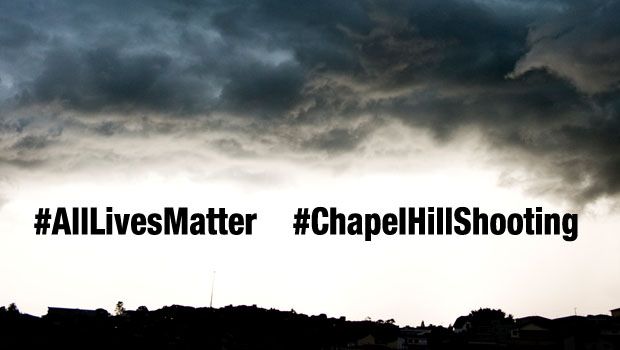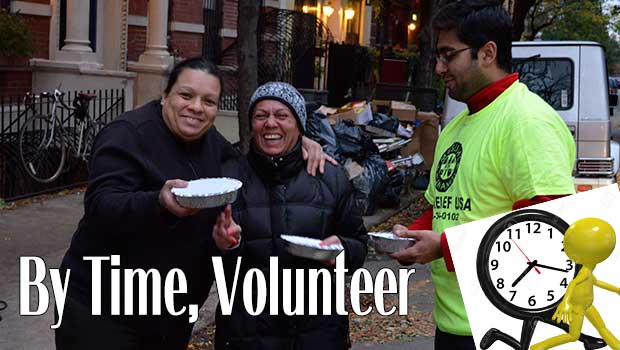Justice is one of the most important values of Islam. In fact, it can be said that beyond instructing humanity about the oneness of Allah, establishing justice is the main purpose of revelation and the mission of Prophets (peace be upon them all). Allah SWT mentions in Surah Al-Hadeed: “Indeed We have sent Our Messengers with clear proofs, and revealed with them the Scripture and the Balance [wherewith to weigh right and wrong] that mankind may stand forth in justice…” (57:25).
Justice must be rendered even if it is against your enemies, as Allah SWT commands: “O you who believe, stand firmly for Allah, as witnesses to justice, and do not let the hatred of a people prevent you from being just. Be just, that is nearer to righteousness. And fear Allah; indeed, Allah is Acquainted with what you do” (Quran 5:8). Islam enjoins justice and anything that violates justice is not, and cannot, be part of the Islamic way of life. Ibn al-Qayyim said, “Every matter that leaves justice for injustice, mercy for its opposite (harshness), benefit for harm, wisdom for foolishness, is not from the Shariah. For indeed, the Shariah is the justice of Allah amongst His servants. It is His Mercy amongst His creation, His protection over His earth, and His Wisdom, which is an indication of Him and of the truth of the Messenger, peace be upon him, […] It is a protection for mankind and the peoples of the world, the pivot of righteousness and happiness in this life and the next.”
Despite this, we see the scarcity of justice in our world and too often the oppressor is made to appear innocent and the oppressed made to look like perpetrators of wrongdoing. Government and media could make Pharaoh look like a man of God and Moses (pbuh) as the tyrant. May Allah SWT protect us all! The foremost of the injustices is to deny the oneness of Allah SWT, the Creator and Master of all that exists. Allah Almighty says in the Quran, “And, lo, Luqman said to his son when advising him: ‘O my son! Join not in worship others with Allah. Verily! Joining others in worship with Allah is a great injustice indeed” (Quran 31:13). So justice must be done with regard to the Creator, to fellow human beings, and even to one’s own self.
We read in the stories of the Companions that the Prophet (pbuh) made a bond of brotherhood between Salman Al-Farisi and Abu Ad-Darda, may Allah be pleased with them both (RA). Salman paid a visit to Abu Ad-Darda and found Um Ad-Darda, his wife, dressed in shabby clothes and asked her why she was in that state. She replied, “Your brother Abu Ad-Darda is not interested in [the luxuries of] this world.” In the meantime Abu Ad-Darda came and prepared a meal for Salman. Salman requested Abu Ad-Darda to eat [with him], but Abu Ad-Darda said, “I am fasting.” Salman said, “I am not going to eat unless you eat; then till you break your fast.” So Abu Ad-Darda ate with Salman. When it was night and (a part of the night passed), Abu Ad-Darda got up (to offer the night prayer), but Salman told him to sleep and Abu Ad-Darda slept. After sometime Abu Ad-Darda again got up but Salman told him to sleep. When it was the last hours of the night, Salman told him to get up then, and both of them offered the prayer. Salman told Abu Ad-Darda “Your Lord has a right on you, your body has a right on you, and your family has a right on you; so you should give the rights of all those who have a right on you.” Abu Ad-Darda (RA) went complaining to the Prophet (pbuh) and narrated the whole story. The Prophet (pbuh) said, “Salman has spoken the truth.”
The call to that justice today, as it was during the lifetime of the Prophet (pbuh), is a cardinal principle of Islam
Benefits of Justice
First, the one who is just will be on the right side of Allah SWT on Day of Judgment as we are told in the following hadith: “Verily, the just will be with Allah on podiums of light, to the right of Ar-Rahman, and both of His Hands are right. They are those who are just and fair in their judgment and with their families and those for whom they are responsible” (Muslim and An-Nasai). Second, one who practices justice will be among the residents of Paradise as narrated by the Prophet (pbuh) who said: “The residents of Paradise are of three types [when they lived in the world] – one who wields authority and is just and fair; one who is truthful and has been endowed with power to do good deeds; and the person who is merciful and kind-hearted towards his relatives and to every pious Muslim, and who does not stretch out his hand in spite of having a large family to support” (Muslim).
Finally, one who establishes justice will be among those who will be shaded on The Day of Judgment. In a hadith Abu Huraira reported that the Prophet, peace and blessings be upon him, said, “There are seven persons whom Allah will shade on a Day when there is no shade but His. They are a just ruler, a young person who grew up in the worship of Allah, a person whose heart is attached to the mosques, two persons who love each other, who meet and depart from each other for the sake of Allah, a man whom a beautiful woman of high status seduces but he rejects her by saying ‘I fear Allah’, a person who spends in charity and conceals it such that his right hand does not know what his left hand has given, and a person who remembered Allah in private and he wept.”
Impartiality in Justice
Once a woman from the noble tribe of the Bani Maghzoom stole something and the people discussed who could talk to the Prophet (pbuh) to see if they could get her punishment averted. They knew that Usaama bin Zaid (RA) was among the most beloved to him so they asked him to intercede on the woman’s behalf. When he did, the Prophet (pbuh) replied angrily, “Do you try to intercede for somebody in a case connected with Allah’s prescribed punishments?” Then he got up and delivered a sermon saying, “What destroyed the nations preceding you, was that if a noble amongst them stole, they would forgive him, and if a poor person amongst them stole, they would inflict Allah’s legal punishment on him. By Allah, if Fatima, the daughter of Muhammad stole, I would cut off her hand.”
So wealth or poverty, friend or foe, relative or stranger – according to Islam, it makes no difference when we establish and mete out justice. Allah SWT warns: “O you who believe! Stand out firmly for justice, as witnesses to Allah, even though it be against yourselves, or your parents or your kin, be he rich or poor, Allah is a better protector to both. So follow not the desires lest you swerve from justice; and if you distort or decline to do justice, verily, Allah is well-acquainted with what you do” (Quran 4:135). A wonderful example that illustrates the Islamic dedication to justice and impartiality that must abide, as described in the above verse, is an incident from the time when Ali (RAA) was khalif. Ali ibn Abi Talib, the fourth khalif, lost his coat of armor. One day he saw a Christian man of Kufa selling the same coat of armor. The case was brought before the judge, Shurayh bin al Alharith. Ali was asked by the judge to produce two witnesses. Ali then brought forward his son Hasan and his slave Qambar. The judge rejected the evidence of his son on the grounds that the evidence of a son in support of his father is not acceptable. Thus Ali, the reigning khalif, lost his case. The Christian man was so greatly impressed at the display of justice and equality by the Muslim judge who did not favor the ruler over the ordinary citizen, that he admitted that Ali was telling the truth – that the coat of armor did belong to him.
Between the wealthy and the dispossessed, the powerful and the weak, the developed industrial nations and those that are technologically less advanced – there must be a universal and impartial standard of justice. The call to that justice today, as it was during the lifetime of the Prophet (pbuh), is a cardinal principle of Islam, as there have always been and will continue to be those individuals and those nations which take their own rights – and more – and then unconscionably deny the most basic rights to others. Men, women, and children all over the world are suffering from so much injustice. As a prerequisite to peace, establishing justice is indispensable to harmonious relations on the individual, family, community, and national levels. But it must be justice for all. For that we must give our full support, unrelenting in our dedication to the universal justice that Islam calls to.






